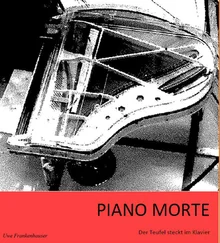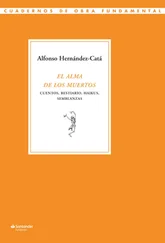Felisberto Hernandez - Piano Stories
Здесь есть возможность читать онлайн «Felisberto Hernandez - Piano Stories» весь текст электронной книги совершенно бесплатно (целиком полную версию без сокращений). В некоторых случаях можно слушать аудио, скачать через торрент в формате fb2 и присутствует краткое содержание. Год выпуска: 2014, Издательство: New Directions, Жанр: Современная проза, на английском языке. Описание произведения, (предисловие) а так же отзывы посетителей доступны на портале библиотеки ЛибКат.
- Название:Piano Stories
- Автор:
- Издательство:New Directions
- Жанр:
- Год:2014
- ISBN:нет данных
- Рейтинг книги:4 / 5. Голосов: 1
-
Избранное:Добавить в избранное
- Отзывы:
-
Ваша оценка:
- 80
- 1
- 2
- 3
- 4
- 5
Piano Stories: краткое содержание, описание и аннотация
Предлагаем к чтению аннотацию, описание, краткое содержание или предисловие (зависит от того, что написал сам автор книги «Piano Stories»). Если вы не нашли необходимую информацию о книге — напишите в комментариях, мы постараемся отыскать её.
Piano Stories
Piano Stories — читать онлайн бесплатно полную книгу (весь текст) целиком
Ниже представлен текст книги, разбитый по страницам. Система сохранения места последней прочитанной страницы, позволяет с удобством читать онлайн бесплатно книгу «Piano Stories», без необходимости каждый раз заново искать на чём Вы остановились. Поставьте закладку, и сможете в любой момент перейти на страницу, на которой закончили чтение.
Интервал:
Закладка:
The next morning, surrounded by shrill women whose loud talk seemed to have caught its interest, the fountain ignored her and she decided the silence of the night had been playing tricks on her: the water could never have transmitted a message or put her in touch with anyone. Listening carefully to what the women were saying, she heard only empty chitchat. But then she realized the water was not to blame for the silly words dropping into it like wastepaper: she must not allow the light of day to play tricks on her now. To get away, she went for a stroll — and came on a poor old man with a watering can. When the old man tipped the can it let out a skirt of spray, which rustled as if a pair of legs were walking in it. She was moved and thought: “No, I can’t leave the water. It must have something to say if it’s so insistent — like a little girl struggling to make herself understood.” That night she avoided the fountain because she had a violent headache. She decided to take a painkiller. But the minute she saw the water in the glass, suspended in the dim light, she imagined it was the same water somehow reaching out to put a secret on her lips, and she said to herself: “No, this is serious. Whoever it is knows the time to bring water for the soul is at night.”
Early in the morning, before anyone was up, she went out to the fountain to study her connection with the water more closely. As soon as she rested her eyes on the water she felt them drop a thought into it. (The way Miss Margaret phrased it was: “a thought I don’t care to discuss right now,” and, after elaborately clearing her throat: “a shapeless thought, limp as a rag that has been wrung out too many times. Slowly, it started to sink, and I let it settle on the bottom. And there it broke into reflections that I drew back into my eyes and soul. I realized, then, for the first time, that water is the place to grow memories, because it transforms everything reflected in it and it’s receptive to thought. In moments of despair you shouldn’t cast your body into the water but rather your thoughts, which will come back renewed and change your whole outlook on life.”) Those, more or less, were her words.
Then she got dressed and took a walk. Some distance ahead, she saw a stream. At first it meant nothing to her, until she remembered streams carried water, and that water was the one thing in the world only she could communicate with. But when she sat by the edge of the stream, letting her eyes follow the current, she had the sudden notion that this water was not addressing her and might even carry her memories off to some faraway place, wearing them down. Her eyes made her concentrate on a leaf that had just fallen into the water from a tree. It drifted for a minute, and, just as it went under, she heard a heavy tread like a dull throb. She felt the pounding of vague fears and premonitions and her mind went dark. The tread turned out to be a horse approaching from the other side of the stream. It had a jaunty gait and looked tame and a bit bored as it sank its muzzle in the water to drink. The water enlarged its teeth, as if she were seeing them through a pane of wavy glass. It raised its head dripping water from every hair but without losing its dignity, and she thought of the horses of her own country and of how different the water they drank must be.
That evening, in the hotel dining room, she recognized one of the women who had been chattering by the fountain and kept an eye on her. The woman was with her husband, whose adoring look she met with an ironic smile, and when she raised a glass to her lips Miss Margaret thought: “The water doesn’t care what mouth it’s in.” She was so upset she went straight back to her room and had a fit of tears. Then she fell into a heavy sleep. At two in the morning she woke up tossing in bed, her soul filled to the brim with the memory of the stream. Now her thoughts argued in its favor: “Stream water is like blind hope flowing through you, beyond your control. If it’s a weak stream it can easily be swallowed up in a hole and trapped there. Then it will become sad and stagnant, full of muddy silence, like a madman’s head. But I must let my hopes run on and carry me along, blindly, if possible, not worrying too much about where they will lead, like water simply following its instinct, until my thoughts and memories become an irresistible current. .” On this quickly rising tide of thoughts, she got up, packed her bags and started to walk up and down her room and the gallery, not daring to face the water of the fountain. She was thinking: “Water is the same all over the world. I can watch my memories grow in any water anywhere in the world.” She was in an agony of anticipation until she had settled into her seat in the train. But then the clatter of the wheels depressed her, and she felt sorry for the water she had left behind in the hotel fountain. She remembered the night it had been murky and clogged with leaves, like a little beggar girl offering her something, innocently but with a touch of natural malice in her innocence, as if to warn her that the hope or promise she held out would remain unfulfilled. She buried her face in a towel and cried and felt better. But she could not take her mind off the quiet fountain water “standing still in the night,” she was thinking, “as I prefer it, slowly sinking into silence and sleep, full of tangled plants: that’s what the water inside me is really like.” And, closing her eyes, she imagined herself as “a blind woman reaching out to the surface of the water, vaguely remembering a pond with plants she saw as a child, when her eyes still had some sight left in them.”
At this point in her story, Miss Margaret stopped for a while, until I became aware of having returned to the night in which I was listening to her under the branches. I wasn’t sure whether her last thoughts had come to her in the train or crossed her mind now, while she spoke. She was already motioning me to take her back to the foot of the stairs.
That night I didn’t turn on my lamp, and, feeling my way around the room, I was reminded of another night when I had gotten a bit high on a drink I was tasting for the first time. It took me a while to get undressed. Later, in bed, with my eyes on the mosquito net, the words shed by Miss Margaret’s body came back to me.
Even before she opened her mouth I had realized not only that she belonged to her husband but that I had been thinking about her too much, and sometimes in a guilty way — and for a moment I’d had the feeling I was the one hiding thoughts among the plants. But as soon as she started to speak, I had felt my body sag miserably under her weight, as if she were sinking into the water and dragging me with her. My guilty thoughts had still managed to surface once or twice, but too fleetingly to seem worth bothering with, and as her story unfolded I had begun to see the water as the spirit of a religion that revealed unexpected aspects of us in which sins had another meaning and mattered less. The sense of sharing in a religion born of the water had grown stronger every minute. Although Miss Margaret and I were the only flesh-and-blood members of that religion, the memories of my own life stirring in the water, in the pauses between the incidents of her story, had seemed to join the flock, one by one, slowly coming to life, as if traveling toward me from some distant time, after some great sin.
Suddenly I had realized a new soul was being born in me from my old one, and that I would follow Miss Margaret not only into the water but into the memory of her husband. And after she had interrupted her story, when I was on my way up the concrete staircase, I had imagined water raining from the sky and the faithful meeting under it.
But now in bed, under the mosquito net, I circled Miss Margaret’s story in a different way and, to my surprise, felt myself gradually being drawn down into my old self, tormented by my own ghosts, as if the net that held my wide-open eyes hung over a swamp where another flock, the one of my own faithful, rose and called out to me. I remembered my guilty thoughts — loaded with the intentions I knew all too well — in some detail. They had begun on one of the first afternoons, when I had suspected Miss Margaret would sweep me up like a great wave, and that I would be too lazy or weak to resist. My reaction had been to try to leave the house, but the impulse had lasted only a moment, as if I had woken up briefly and made what I thought was a move to get out of bed when all I had really done was roll over to go on sleeping. Another afternoon, I had tried to imagine — this had already happened to me with other women — what I would look like married to Miss Margaret. After thinking it over I had decided, losing heart, that if I pitied her loneliness enough to marry her, my friends would say it had been for her money and my old girlfriends would laugh at the picture of me on a narrow walk, trailing after an enormous woman who turned out to be my wife. (I had already had to follow her along the ledge that encircled the lake, on the nights when she felt like walking.)
Читать дальшеИнтервал:
Закладка:
Похожие книги на «Piano Stories»
Представляем Вашему вниманию похожие книги на «Piano Stories» списком для выбора. Мы отобрали схожую по названию и смыслу литературу в надежде предоставить читателям больше вариантов отыскать новые, интересные, ещё непрочитанные произведения.
Обсуждение, отзывы о книге «Piano Stories» и просто собственные мнения читателей. Оставьте ваши комментарии, напишите, что Вы думаете о произведении, его смысле или главных героях. Укажите что конкретно понравилось, а что нет, и почему Вы так считаете.












